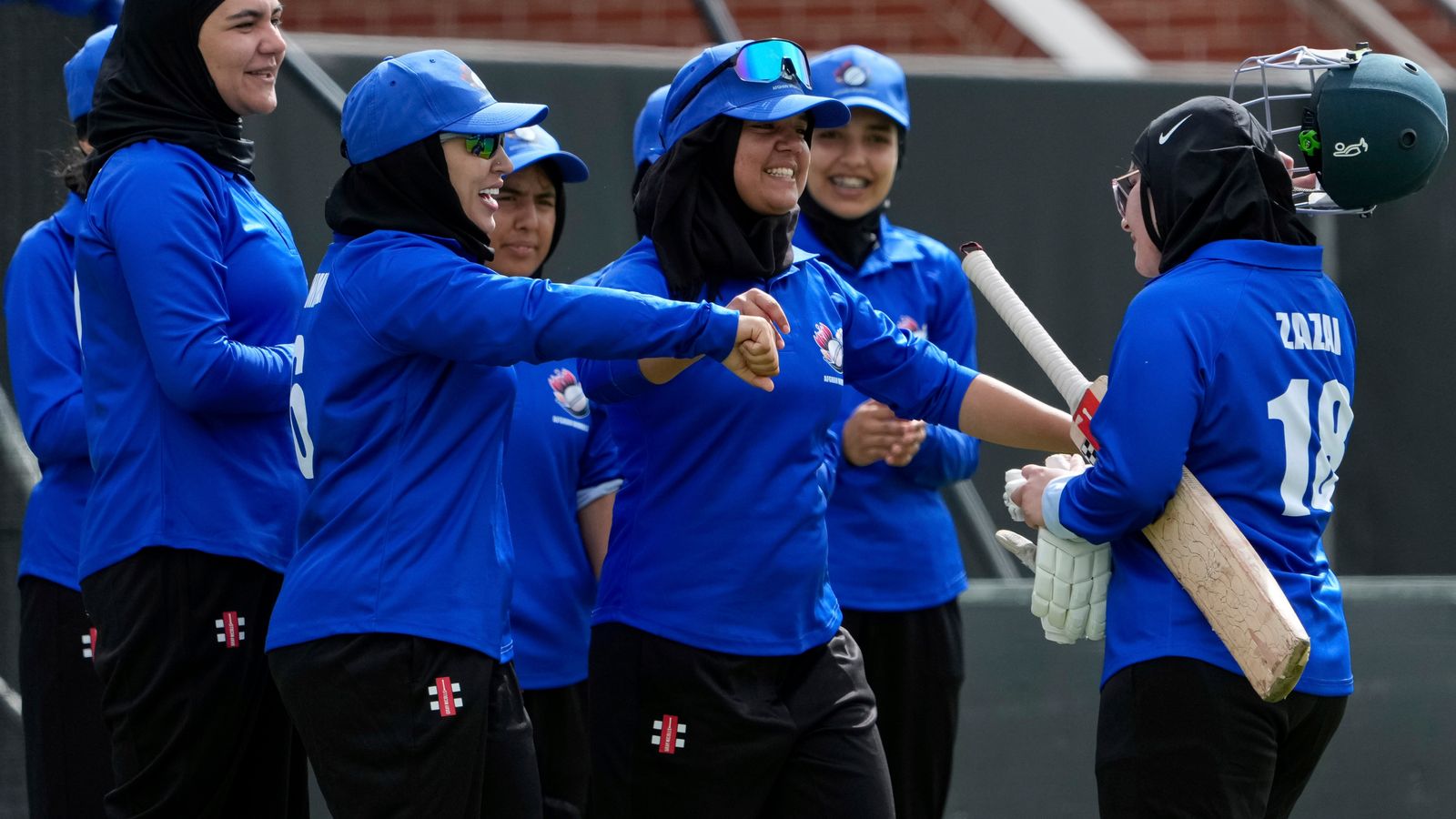The Human Rights Watch has called for the International Cricket Council to stand on the side of Afghanistan’s women cricketers and “not on the side of the Taliban”.
The international NGO penned a letter to the governing body on March 7 calling for Afghanistan to be suspended from cricket in response to the erosion of women’s rights in the Taliban-controlled country.
All women’s sport is effectively outlawed under the regime, with the majority of the women’s cricket team living in exile in Australia.
That places Afghanistan in direct contravention of the ICC’s own terms of membership as the men’s team has been allowed to continue playing cricket, featuring most recently in the ICC Champions Trophy.
HRW’s director of global initiatives, Minky Worden, wrote the letter to ICC chair Jay Shah and spoke to Sky Sports News about the latest development.
She urged the ICC to engage with the members of the Afghanistan women’s team as a first step, saying: “They are not giving the women who are affected by the exclusion from sport a seat at the table.
“It’s stakeholder consultation and involving the affected people is one of the core rules of international human rights. The International Olympic Committee has adopted a human rights framework and the UN Guiding Principles on Business and Human Rights.
“They also, even before that happened, had gender non-discrimination as part of the Olympic Charter. So the ICC is completely in violation of the Olympic rules. Human Rights Watch has raised this also, and we’ve sent the letter to the International Olympic Committee.
“The ICC’s position can’t continue. It’s not fair to Afghan women and girls who deserve the right to compete.
“As we go into the Los Angeles Olympics, it puts the ICC completely outside the international system.
“I want to be clear, it’s the Taliban that are excluding women and girls, not the ICC.
“But the ICC needs to stand not on the side of the Taliban, but rather on the side of female cricket athletes.
“That is the only way forward. There are lots of steps they could take to do that. But they first need to engage with the women who are affected by this and who’ve taken enormous risks to continue playing cricket.”
In January, Afghanistan’s exiled women’s cricketers represented their country for the first time since the Taliban reclaimed control, featuring in an historic exhibition match against Cricket Without Borders (CWOB), in what they hope will mark the start of a new journey for them.
Boycott vs suspension
In the letter to the ICC, HRW has called for Afghanistan to be suspended from cricket. This is the first time a call like this has been made, with others previously calling for a boycott.
Firooza Amiri, an Afghan cricketer living in exile who spoke to Sky Sports News ahead of Afghanistan men’s Champions Trophy match against England, said the women do not support a boycott.
Worden said there is a major difference between a boycott and a suspension, stating the Afghanistan Cricket Board (ACB) has broken the ICC’s rules of the game and therefore should face punishment.
“A boycott is almost a Cold War tool. I think of it as, for example, the boycott of the Olympics in the Soviet Union in 1980, or the return boycott by Soviet bloc countries of the 1984 Summer Olympics in Los Angeles,” Worden said.
“A boycott would be if England’s side did not agree to play Afghanistan as a consequence of this. So we’re not advocating for a boycott. We’re advocating for the rules to be applied equally.
“The ACB does not meet the non-discrimination rules of the ICC. It is unfortunate. It is a choice by the ACB not to allow women and girls to play the sport. That puts them in violation of the ICC rules.
“Perhaps most importantly, it puts them in violation of the Olympic Charter, which says that sport is a human right. Now, the Olympics is an important element here because cricket will be part of the Olympics in Los Angeles in 2028.”
Sky Sports News has contacted the ICC for comment following this interview.
<



